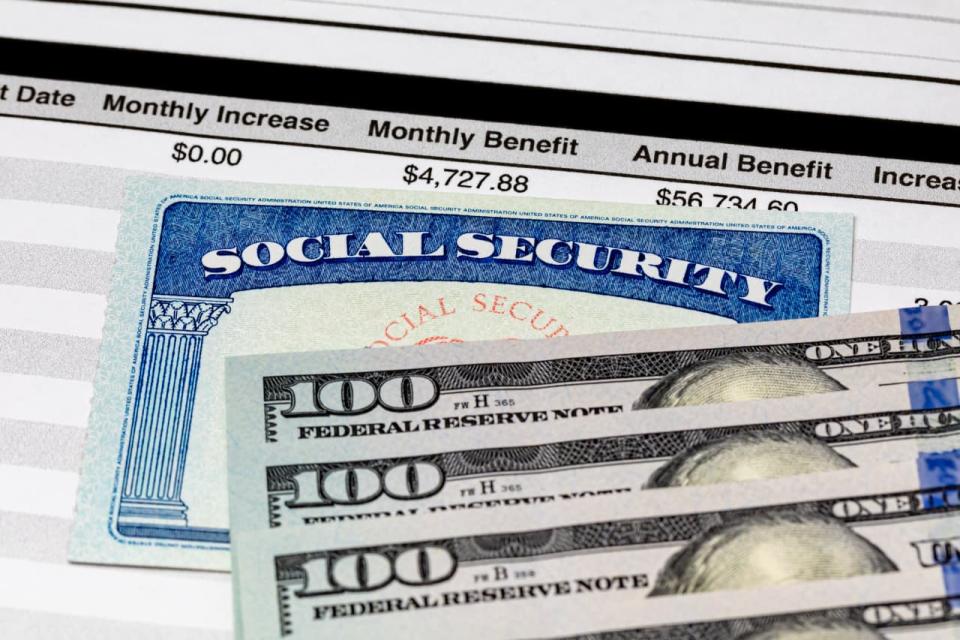I considered taking Social Security at 62 instead of waiting. Why you should too.

I was prepared for the usual questions on my birthday recently, about everything from gifts received to how I was celebrating and more.
I was not prepared for this: “So are you claiming Social Security benefits to celebrate?”
Most Read from MarketWatch
Frankly, I hadn’t considered how turning 62, as I did on June 13, makes me eligible to start taking Social Security benefits. In fact, I never seriously considered taking Social Security before the last possible date, when I turn 70.
Until now.
Everyone and nearly everything points to significant positives from waiting to claim benefits for as long as possible. But not long ago I got news that two friends who died, both old enough to have taken benefits, never did.
My fresh look at the issue probably resonates with a lot of people who have “predecided” when they will take benefits without considering their health, life circumstances and the future of Social Security.
It’s impossible to make optimal decisions about Social Security without knowing the rules, so here’s a refresher.
The age when you claim Social Security dramatically impacts the monthly benefits you (and your spouse if you’re married) receive for life. Simply put, the later you claim Social Security, the higher the monthly payment.
Age 62 is the earliest you can claim benefits; “full retirement age” is when you’re entitled to 100% of your monthly Social Security retirement benefits. Currently, full retirement age ranges from 66 to 67, depending on when you were born (for people born in/after 1960, like me, it’s 67). At 70, you must start drawing your benefits.
You can keep working after claiming Social Security, so taking benefits early doesn’t necessarily impact your job; the extra dough impacts your lifestyle today, but so does waiting years to get that significantly higher benefit.
Benefit amounts generally are based on when you start collecting and the average of the highest 35 years of earnings on which you’ve paid Social Security payroll taxes. Take payouts at 62 and your distribution may be cut by about 30% per month from full retirement age; wait for 70, and benefits can grow by about that much.
There are many online tools for calculating your “Social Security break-even age,” which is when the total amount of benefits received by someone claiming benefits early is the same as what they would have received by waiting longer.
Generally speaking, however, someone waiting until age 70 to claim benefits would need to live to 79 to break even with the benefit amount received if they started taking benefits at 62.
That’s not a sure thing for anyone, but especially not for a guy like me who had a heart attack at age 48. And, yes, if I invested the proceeds, that theoretically pushes out the break-even point even further.
While other rules and reasonings can apply — coordinating spousal benefits is particularly important, and I remarried last November — my key questions were as follows:
Most of the questions are personal, but it’s easy to find scary stories saying the Social Security Trust Fund will be exhausted by 2034, concluding that Social Security will be bankrupt soon thereafter.
Yes, the Old Age and Survivor’s Insurance (OASI) Trust could be exhausted come 2033 — my first calendar year of full benefits if I wait to age 70 — but Social Security isn’t going anywhere without significant law changes.
Under current law, Social Security will never completely run out of money or go bankrupt because it isn’t just funded by the Trust, but also gets FICA taxes paid by the workers and employers participating in Social Security. Once the OASI Trust is exhausted, FICA taxes are projected to be able to pay about 77% of benefits.
Standard proposals for addressing the issue involve raising the full retirement age, reducing cost-of-living adjustments and cutting benefits for high earners. Expect Congress to wrestle with that and more before the trust fund is depleted; historically, proposed changes protect people age 55 and up who lack sufficient time to adjust their planning.
Most people claim Social Security at full retirement age, rather than 62. After my evaluation, I still expect to wait until age 70, though I will review that decision annually until I get there.
I must admit, I could be convinced to take benefits early more easily than I thought possible, but I still place the most value on getting the higher, inflation-adjusted Social Security benefit for life.
It’s a lot like saving for retirement by living on less than we earn to protect our future. Delaying Social Security is its own form of investing for the future. Yet I’m sure that every time there’s a problem with the car, the oven stops working or the refrigerator goes warm, I’ll think, “It sure would be nice to have that money now.”
For millions of Americans, when to take Social Security is the most impactful financial decision of their lives. Don’t jump into it without asking honest questions, factoring in your lifestyle and mindset, and doing the math. It might not change your mind, but it will put it at ease that you’re making your best move.
Also read: It’s time for Gen X–ers nearing 60 to give their retirement plans a reality check
More: Most people earning $100K or more are making this huge 401(k) mistake
